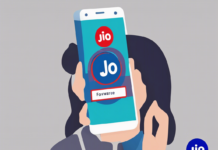Bandar is a popular Hindi word that means “monkey.” Derived from the Sanskrit word “vanara,” it often refers to a mischievous or playful individual. In colloquial usage, “ek bandar” translates to “one monkey,” but the phrase carries a deeper meaning that implicates a person who can handle tasks single-handedly or someone who is self-sufficient. This guide aims to explore the concept of “ek banda kafi hai” and how it can apply to various aspects of life, from productivity and self-reliance to problem-solving and efficiency.
Understanding the Concept: “Ek Banda Kafi Hai”
In a literal sense, “ek banda kafi hai” emphasizes the idea that a single competent individual is sufficient for a particular task or job. This concept celebrates independence, resourcefulness, and the ability to excel without the need for external help or intervention. Whether in professional settings, personal endeavors, or everyday challenges, being “ek banda” signifies a high level of skill, competence, and self-reliance. Let’s delve deeper into how this philosophy can be applied in different contexts:
Personal Productivity and Self-Reliance
- Setting Goals: Having a clear vision of what you want to achieve is crucial to being “ek banda.” Set specific, measurable, achievable, relevant, and time-bound (SMART) goals to stay focused and motivated.
- Time Management: Prioritize tasks efficiently to maximize productivity. Use techniques like the Pomodoro method or time blocking to enhance your workflow and accomplish more in less time.
- Continuous Learning: Invest in self-improvement through reading, online courses, or skill development programs. Stay updated with industry trends and best practices to enhance your knowledge and expertise.
Problem-Solving and Innovation
- Critical Thinking: Analyzing situations from different perspectives and thinking outside the box are key traits of “ek banda.” Develop your critical thinking skills to navigate challenges and find creative solutions.
- Adaptability: Be open to change and embrace uncertainty. Flexibility and adaptability are essential in overcoming obstacles and thriving in diverse environments.
- Risk-Taking: Calculating risks and taking bold decisions are part of being a self-reliant individual. Step out of your comfort zone, accept challenges, and learn from both successes and failures.
Efficiency and Effectiveness
- Streamlining Processes: Optimize workflows and eliminate unnecessary steps to enhance efficiency. Look for automation tools or software that can simplify tasks and save time.
- Delegation: While being self-reliant is crucial, recognizing when to delegate tasks is equally important. Delegate responsibilities when necessary to focus on high-priority projects and improve overall productivity.
- Self-Care: Prioritize your well-being by maintaining a healthy work-life balance. Take breaks, exercise, meditate, and ensure you recharge both physically and mentally for optimal performance.
Frequently Asked Questions (FAQs)
1. What does “ek banda kafi hai” mean in a work context?
In a work context, “ek banda kafi hai” signifies an individual’s ability to handle tasks effectively without constant supervision or the need for extensive support from others. It highlights self-reliance, efficiency, and a high level of competence in accomplishing job responsibilities.
2. How can one cultivate the mindset of “ek banda kafi hai”?
Developing the mindset of “ek banda kafi hai” involves setting clear goals, enhancing problem-solving skills, prioritizing self-improvement, and embracing challenges with confidence. Continuous learning, adaptability, and self-care are essential components in fostering this mindset.
3. Is it essential to delegate tasks, or should one focus solely on self-reliance?
While self-reliance is valuable, knowing when to delegate tasks is equally important for overall productivity and efficiency. Delegating allows individuals to focus on high-priority activities, foster teamwork, and leverage collective strengths for better outcomes.
4. How can “ek banda kafi hai” philosophy benefit personal growth and development?
The “ek banda kafi hai” philosophy empowers individuals to take ownership of their growth and development. By cultivating self-reliance, resilience, and adaptability, one can overcome challenges, enhance problem-solving skills, and achieve continuous improvement in various aspects of life.
5. Can the concept of “ek banda kafi hai” be applied to team dynamics and collaboration?
While emphasizing individual competence, the concept of “ek banda kafi hai” can also complement teamwork and collaboration. When each team member embodies self-reliance and contributes their unique strengths to collective goals, the synergy achieved can lead to exceptional outcomes and mutual success.








